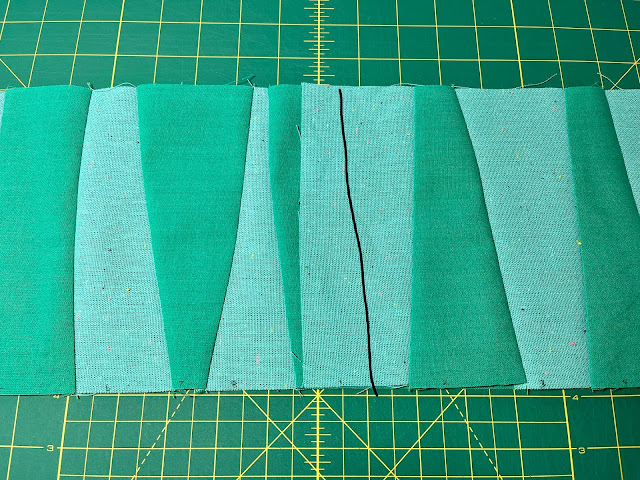About 10 years ago I designed a block based on our church's logo, and I've used the design several times to make small wall hangings or other gifts. I've also made a quilt using a larger version of the logo.
My latest quilt, Mosaic Musings, uses multiple instances of the block in a modified grid.
The fabrics are primarily by Giucy Giuce and Alison Glass; the background fabric is Essex Yarn Dyed in Aqua.
The quilting is done in a diamond grid -- which somehow makes me think of stained glass windows.
The backing fabric is a Mammoth Junior flannel. I really like how it coordinates with the aqua linen.
I used the aqua linen for binding as well.
The church uses various colorways of the logo depending on context, one for general use and others associated with specific ministries. I tried to incorporate each of these colorways, and also added some variations of my own.
Incorporating the church's different colorways produces a result that appears more random than I would probably have come up with on my own -- but I think it works.






























